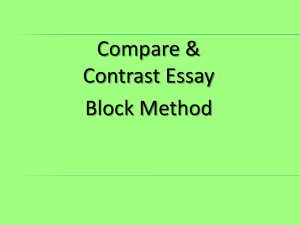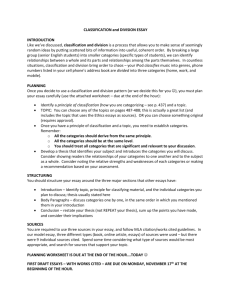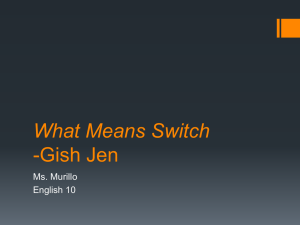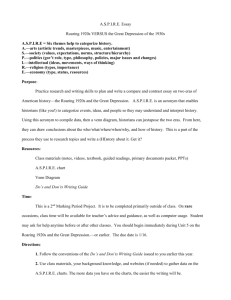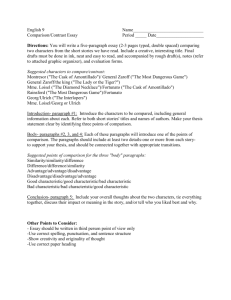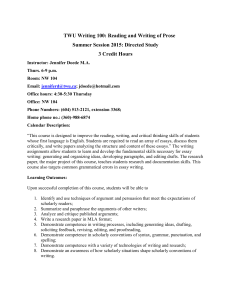Strategies for Writing an In-Class Essay
advertisement
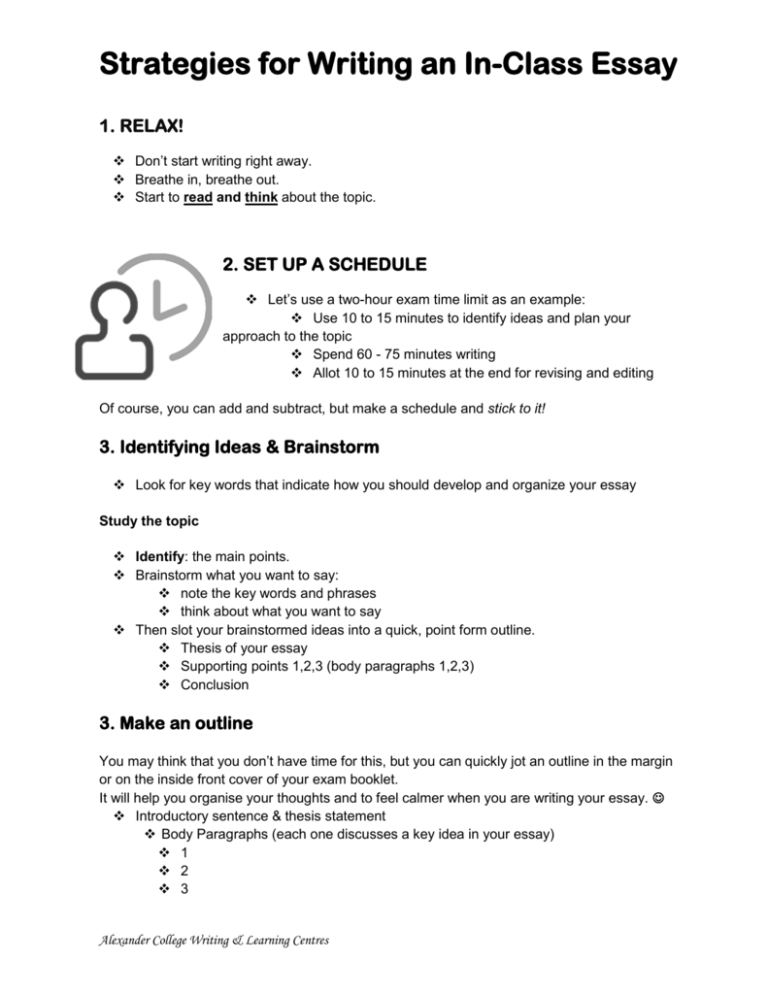
Strategies for Writing an In-Class Essay 1. RELAX! Don’t start writing right away. Breathe in, breathe out. Start to read and think about the topic. 2. SET UP A SCHEDULE Let’s use a two-hour exam time limit as an example: Use 10 to 15 minutes to identify ideas and plan your approach to the topic Spend 60 - 75 minutes writing Allot 10 to 15 minutes at the end for revising and editing Of course, you can add and subtract, but make a schedule and stick to it! 3. Identifying Ideas & Brainstorm Look for key words that indicate how you should develop and organize your essay Study the topic Identify: the main points. Brainstorm what you want to say: note the key words and phrases think about what you want to say Then slot your brainstormed ideas into a quick, point form outline. Thesis of your essay Supporting points 1,2,3 (body paragraphs 1,2,3) Conclusion 3. Make an outline You may think that you don’t have time for this, but you can quickly jot an outline in the margin or on the inside front cover of your exam booklet. It will help you organise your thoughts and to feel calmer when you are writing your essay. Introductory sentence & thesis statement Body Paragraphs (each one discusses a key idea in your essay) 1 2 3 Alexander College Writing & Learning Centres Strategies for Writing In-Class Exams / 2 Conclusion: Don’t worry about a full paragraph. A sentence or two that summarizes your points and refers back to your thesis is enough Make sure your conclusion and Thesis statement are in agreement with each other. Ready to Write Start with a strong first sentence Don't waste time composing a long introduction. Clearly state the main points in the first 1 or 2 sentences. Add in your thesis statement Stay On Track! As you're writing the essay, now and then reread the question and your thesis to make sure that you haven't wandered off course. Don't pad your essay with information unrelated to the topic. Don't panic!!! If you find yourself running short on time, don't start panicking and writing frantically. Consider these strategies instead … Consider listing the key points you still want to make. Your instructor will know that lack of time, not lack of knowledge, was your problem. A simple one-sentence conclusion emphasizing your main point A hastily constructed ending paragraph could lower the value of the rest of the essay. A well worded, strong concluding sentence is usually the better way to go. Alexander College Writing & Learning Centres





